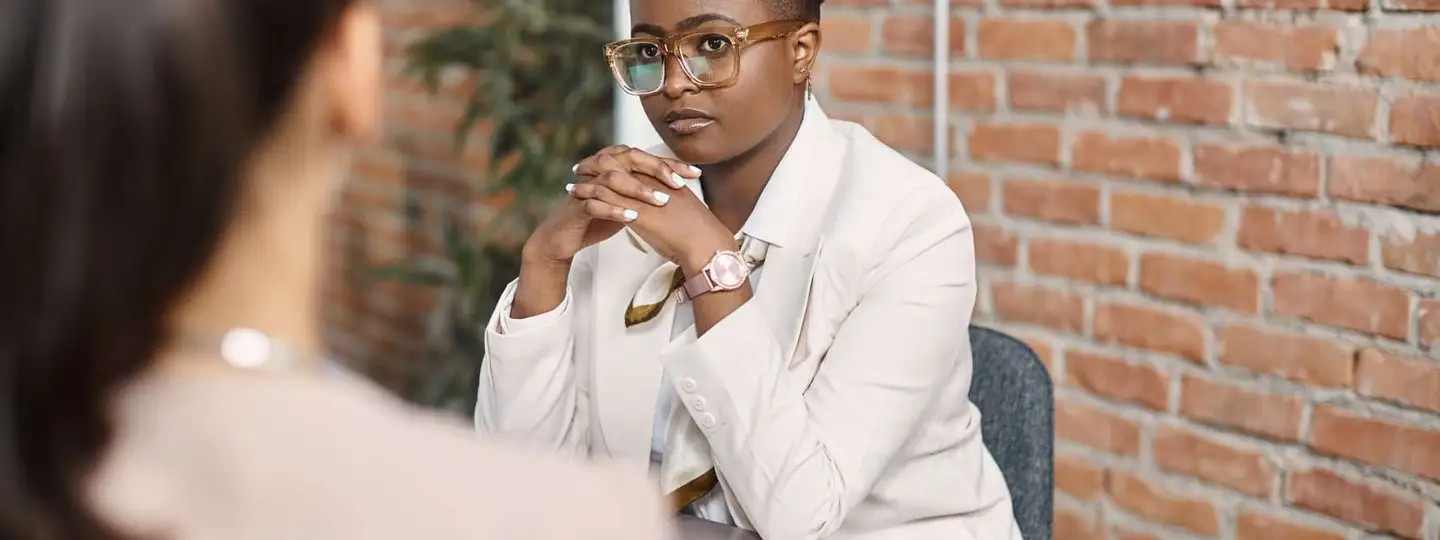Behavioral questions are a common part of job interviews, and they can be intimidating if you're not prepared.
Here are some tips on how to prepare for behavioral interview questions.
What are Behavioral Interview Questions?
Behavioral interview questions are used to assess candidates' skills, abilities, and qualities. They are often used to determine whether a candidate would be a good fit for a particular job.
These questions can be divided into two categories: behavioral questions and trait questions.
Behavioral Questions for Interview
These behavioral-based interview questions are designed to assess a candidate's behavior. Some common behavioral interview questions are:
- How do you handle stress?
- What are your strengths and weaknesses?
- How do you handle difficult situations?
- What motivates you?
- How do you handle criticism?
- What are your best qualities?
Trait Interview Questions
Trait interview questions are designed to assess a candidate's qualities. They are often used to determine whether a candidate would be a good fit for a particular job.
Some common trait interview questions are:
- What are your strengths and weaknesses?
- What motivates you?
- What are your best qualities?
Ten Common Behavioral Interview Questions
There are several behavioral questions a candidate may have to answer. Here are 10 top behavioral interview questions that may be asked.
- Tell me about a time when you had to cope with a difficult situation.
- What are your strengths and weaknesses?
- What do you do best?
- What do you find the most challenging about your job?
- What motivates you?
- Can you say you’ve succeeded as a leader?
- Tell me about a time when you put your feelings aside and acted in a respectful manner.
- What do you think is the most important attribute for a successful career?
- What do you think sets you apart from your competition?
- How do you handle stress?

How to answer Behavioral Interview Questions?
Behavioral interview questions can be tricky to answer. Here are 10 common questions and how to answer them.
1. Why do you want this job?
This question is designed to get to know you better and assess your motivations for applying for the job.
- Take a step back and think about what you want in a job. What are your goals and objectives? Once you have a good understanding of what you're looking for, you can start to formulate your answer.
- Think about how this particular job aligns with your goals and objectives. What about the job appeals to you? What makes it a good fit for what you're looking for? Again, be specific in your answer.
2. Tell me about a time when you had to take charge and lead a team.
When answering a behavioral interview question like this, it's important to give a specific example of a time when you took charge and led a team. This will help the interviewer get a sense of your leadership abilities and how you handle situations when you're in charge.
3. Give us an idea of what you did when you failed as a leader.
It's important to be honest and reflective when you answer this question. Take responsibility for your actions and explain what you learned from the experience. Be sure to focus on the positive aspects of how you handled the situation and what you would do differently next time.
4. What are your strengths and weaknesses?
In terms of your strengths, you might want to focus on qualities that make you a good team player or that which show your ability to lead and take initiative.
As far as weaknesses go, it is important to be honest but to also focus on qualities that you are working to improve. For example, you might say that you tend to be a perfectionist and that you are working on learning to let go of things that are out of your control.
5. Was there a time when you had to meet tight deadlines?
To answer this question, you should think of a specific instance when you had to work under a tight deadline. You should then describe how you handled the pressure and what the outcome was.
It is important to demonstrate that you are able to stay calm and focused under pressure, and that you are able to meet deadlines even when the conditions are not ideal.
6. What are your thoughts on teamwork?
This question helps the interviewer assess your attitude towards working together. You can talk about your experience working in a team or any positive or negative experiences you've had.
7. Do you have any questions for me?
When you're asked whether you have any questions for the interviewer, it's important to take the opportunity to ask questions that will help you learn more about the company and the role.
What challenges does this department/team face?
What are the company's values?
8. How did you respond when you had a difficult customer to deal with?
This question allows the interviewer to see how you handle difficult situations. When answering this question, be sure to focus on the steps you took to diffuse the situation and how you ultimately resolved the issue.
9. Tell me about a time when you had to take on a new task.
The best way to answer this question is to talk about a time when you had to take on a new task at work. You would want to describe the situation and what your role was. Then, you would want to go into detail about what you did in order to complete the task successfully.
10. What is your experience with using force?
When answering this type of question, it is important to be honest and candid. Discuss any relevant experience you have in using force, whether it be through law enforcement, military, or other means. If you have no direct experience, mention any training or simulations you have participated in that would give you the skills needed for this type of situation.
Ten Tips to prepare for a Behavioral Interview
- Read the job description carefully. Familiarize yourself with the company's mission, goals, and culture.
- Prepare a list of questions that you would ask during the behavioral interview. Be prepared to answer questions about the job, the company, and the department.
- Be confident and articulate when answering questions. Be honest and forthcoming, and avoid making any inappropriate comments.
- Control your body language. Try to project a positive and confident demeanor, and avoid appearing anxious or uncomfortable.
- Dress professionally. Ensure that you are dressed appropriately for the interview, and avoid wearing anything that might make you stand out.
- Bring a copy of your resume. Make sure that you have everything that you need to hand over in case you are asked to provide additional information.
- Carry a pen and paper. If you need to take notes during the interview, be sure to do so in a distraction-free environment.
- Be aware of the time. Be sure to arrive at the interview on time and to leave when the interview is scheduled to end.
- Prepare yourself to answer questions about your skills and experience.
- Thank the interviewer for their time and effort.
Behavioral interview questions are designed to get to know a candidate better, and it's important to be prepared for them. In order to answer questions confidently and effectively, it's important to have a good understanding of the job and the company. Additionally, it's important to be aware of your own behavior and how it might be reflected in a job interview.

![How To Evaluate HR Transformation Effectiveness [2026 Guide]](/static/image?src=https%3A%2F%2Fcdnblog.unrubble.com%2Fpayload-unrubble-images%2FUnrubble-how-to-evaluate-hr-transformation-effectiveness-2026-guide-180x120.jpg&width=128&height=128&fit=cover&position=center&quality=65&compressionLevel=9&loop=0&delay=100&crop=null&contentType=image%2Fwebp)






